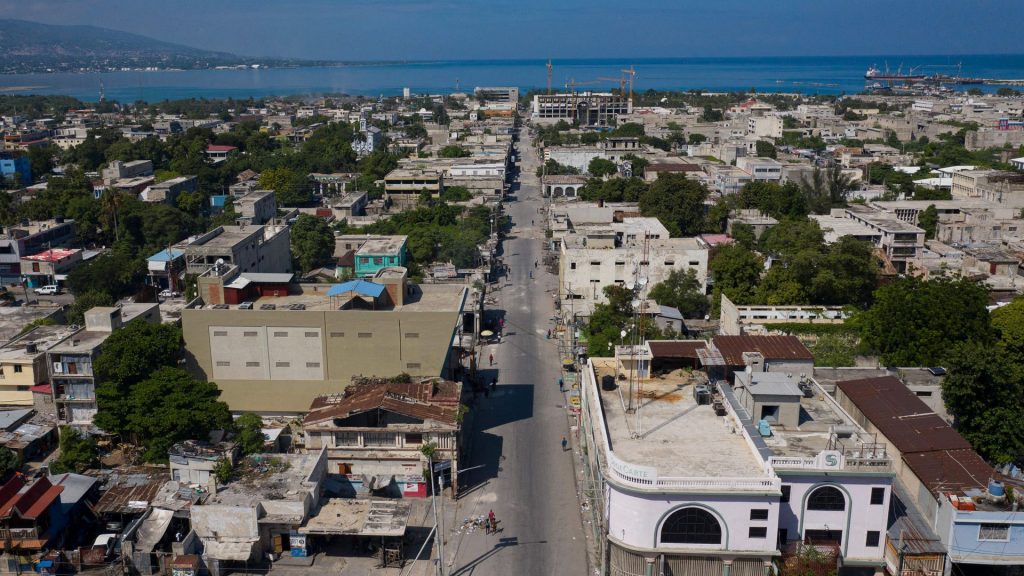Macron acknowledges France’s financial ‘ransom’ on Haiti after independence
Ella Greene April 17, 2025 0
- On the 200th anniversary of France recognizing Haiti’s independence, President Emmanuel Macron acknowledged the massive debt imposed on Haiti was unjust. The payments, which continued until 1947, left the country financially crippled for generations.
- Haiti was forced to borrow from French banks to meet France’s demands, creating a “double debt” that deepened poverty while enriching lenders.
- Macron announced a joint historical commission with Haiti but stopped short of offering reparations as calls for restitution continue to grow from regional leaders and advocacy groups.
Full Story
On the 200th anniversary of Haiti’s formal recognition by France, French President Emmanuel Macron called the massive debt imposed on the newly independent nation a “heavy price” and acknowledged it was unjust. His remarks mark a rare public recognition of the financial burden France placed on its former colony, but it falls short of offering the reparations many have long demanded.
Haiti’s independence
Haiti declared its independence in 1804 after defeating French forces in the only successful slave revolt in modern history. It wasn’t until April 17, 1825, that France officially recognized Haiti’s sovereignty. It came only under the condition that the Caribbean nation pay 150 million gold francs to compensate former slaveholders for lost “property,” including enslaved people.
To meet this demand, Haiti was forced to take out substantial loans from French banks, creating what historians refer to as a “double debt.” The loans boosted French banks while dragging Haiti into decades of debt. According to historians, payments didn’t stop until 1947. The original debt was later reduced to 90 million gold francs, but the economic effect of the debt already lingered.
Critics argue that France’s delayed recognition was a way to rewrite history on its own terms and reassert power over a nation it had lost to in the revolution.
France-Haiti commission to address history
In his remarks, Macron announced the creation of a joint French-Haitian historical commission to explore the two countries’ shared past and produce proposals for cooperation. However, he did not offer reparations, which Haitian leaders and international advocates have repeatedly called for.
Advocates call for reparations for Haiti
Fritz Deshommes leads the Haitian National Committee on Restitution and Reparations (HNCRR). He calls Macron’s announcement a small step into fixing what history caused without really fixing the issue. He told The Guardian, “In the same way, France has recognised slavery as a crime against humanity, yet refuses to make reparations for that crime. The struggle for the restitution of the triple ransom of independence must therefore continue and intensify.”
The Haiti Action Committee, a U.S.-based advocacy group, said financial reimbursement alone isn’t enough. In a post, the group emphasized that “true repair starts from within” and called for a global commitment to help rebuild a nation still grappling with the legacies of colonization and exploitation.
Advocates said the scars of that legacy are visible today. Haiti is currently facing a severe humanitarian crisis, with escalating violence in Port-au-Prince. Gangs reportedly control about 85% of the capital, forcing thousands of families to flee their homes and leaving many without access to food, water, or basic services.
Caricom releases action plan calling for action
Regional leaders are also urging action. CARICOM, the Caribbean Community, has proposed a 10-point plan pushing for reparations from France and other former colonial powers. The political union argues these nations once justified slavery and genocide in the name of national interest, denied compensation to the formerly enslaved and instead paid reparations to former slave owners. These policies, they say, have fueled generations of economic and social instability across the Caribbean.
According to Macron, the new commission will work toward a peaceful future by confronting the past. However, for many Haitians and their advocates, that future must include more than reflection; it must also include restitution.
Related Stories
Ella Rae Greene, Editor In Chief
Ella Greene
Ella and the staff at Clear Media Project (CMP) curate these articles.
Unless otherwise noted CMP does not write these articles.
The views, thoughts, and opinions expressed in the articles published on this blog belong solely to the original authors and do not necessarily reflect the views of the blog owner. The blog owner does not claim ownership of the content shared by contributors and is not responsible for any inaccuracies, errors, or omissions.
All rights and credits goes to its rightful owners. No Copyright Infringement is intended. If you believe any content infringes on your rights, please contact us for review and potential removal.





